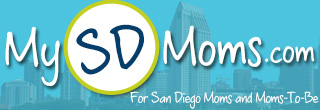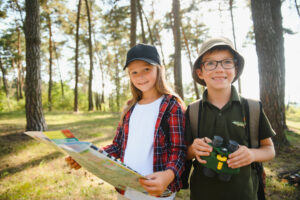
(StatePoint) While formal education may not begin until age five, those years preceding classroom learning are crucial to brain development. You can get your child started on the right path early on by encouraging learning whenever possible.
Sing a Song
Simple songs can be a fun and helpful way to reinforce basic concepts like numbers, letters and animals. Sing with your little one in the car, or when you have free time at home. Great choices include “Head, Shoulders, Knees and Toes,” “The Alphabet Song,” and “The Wheels on the Bus.”
Stock your home with simple instruments like kazoos, tambourines, and mini keyboards built for little fingers to encourage impromptu solos. Also, consider enrolling your child in music classes, which can be a great way to lay the foundation for music instruction later in life.
Colorful Books
“Books for young children should also be learning tools that help build vocabulary and language skills,” says Sophie Mitchell, preschool publisher at DK Publishing.
For newborns, Mitchell recommends books that feature bright, bold colors and vivid patterns that are easy to hold, for sharing between baby and parent.
“Babies love to hear the sound of their parent’s voices, so read enthusiastically to your child,” she says. Mitchell also recommends that parents choose books that are filled with the things babies find fascinating, such as images of others babies, toddlers, animals and vehicles.
Toddlers love pointing out things they know and saying the words out loud. They appreciate book content that features images of their real world. Surprise elements like flaps, sounds, pull tabs and textures can provoke curiosity and engage reluctant readers.
“Preschool-aged children need clear, appealing subjects which capture their preoccupations and passions,” adds Mitchell.
For this age group memory is a very important reading skill to develop, so parents should look for titles that include fun, repetitive text. Clear word labels can help young children make associations between images and words.
For an early learning library, consider introducing your tykes to the “My First” board book series. First published in 1989, these iconic little books have now been reimagined for a new generation. With titles like “My First Animals,” “My First Colors,” and “My First Words,” they are packed with bright, colorful photographs and large easy-to-read text to captivate budding readers. More information about the series can be found at www.Dk.com.
Be Active
Babies, toddlers and preschoolers need lots of mental stimulation for brain development. Rather than simply sitting them in front of the television, take little trips that can foster questions and observations. Whether that be the playground, the zoo or even a run-of-the-mill trip to the grocery store, these experiences are crucial for early learning. Talk to your child throughout the trip, pointing out things you see. When you get home, you can reinforce the real-world concepts with learning books.
Don’t wait until kindergarten to get the ball started on education.
By simply reading out loud and encouraging everyday play, you can help develop key learning skills in your child.




